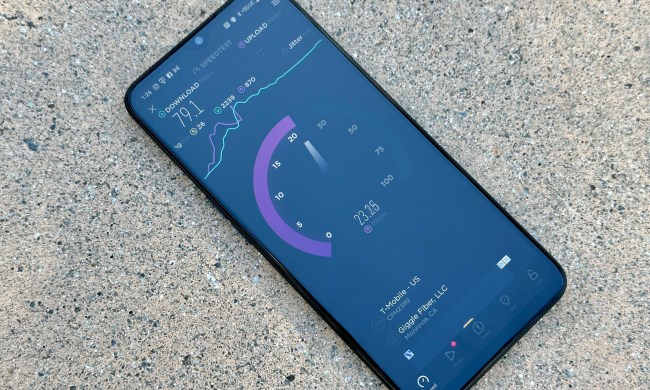Carriers are fully in the swing of deploying their 5G networks, with AT&T, Verizon, and T-Mobile all having now rolled out nationwide networks using a combination of Sub-6 and mmWave spectrum. That’s good news for those who want to enjoy 5G on their smartphones — but it may have an impact on another internet connection, too: The home internet connection.
Along with massively supporting mobile 5G, carriers are also beginning to launch 5G home internet services, sometimes called fixed wireless. These services basically involve the use of a gateway, which connects to your carrier’s 5G network and turns that signal into Wi-Fi for your home devices.
Here’s everything you need to know about the 5G home internet plans currently on offer. You can also check out our guide to 5G phone plans if you’re interested.
Verizon 5G home internet

Verizon’s 5G home internet service is currently the most robust in the U.S. The company has been pushing a 5G Home Internet service of one flavor or another since late 2018, and while it’s available in only a few cities, if you’re eligible, it might be radically better than your current internet service.
Verizon’s 5G home internet service comes at $50 if you have a Verizon phone plan that costs $30 or more, or $70 if you don’t.
According to Verizon, customers should experience download speeds of 300Mbps, on average, but speeds will hopefully get much higher than that as Verizon continues to roll out and build on its 5G network. Of course, given that it’s an average, customers may also experience slower speeds.
Verizon offers some perks for those who sign up for its 5G home internet service, too. For example, customers will get a Verizon-built TV streaming box, which supports most major streaming platforms, for free. And Verizon will also throw in an Amazon Smart Home Bundle, which comes with a range of smart home devices, including an Amazon Echo Show 5.
Verizon’s 5G Home Internet service is not available nationwide. Instead, it’s available in some select cities because the service runs on Verizon’s mmWave network, which enables its incredible speeds. Here’s a list of those cities:
- Phoenix, Arizona
- Los Angeles, California
- Orange County, California
- Sacramento, California
- San Francisco, California
- San Jose, California
- Denver, Colorado
- Miami, Florida
- Atlanta, Georgia
- Chicago, Illinois
- Indianapolis, Indiana
- Detroit, Michigan
- Minneapolis, Minnesota
- St. Paul, Minnesota
- St. Louis, Missouri
- Arlington, Texas
- Dallas, Texas
- Houston, Texas
- Cleveland, Ohio (starting March 18)
- Las Vegas, Nevada (starting March 18)
- Louisville, Kentucky (starting March 18)
- Omaha, Nebraska (starting March 18)
- San Diego, California (starting March 18)
- Charlotte, North Carolina (starting March 25)
- Cincinnati, Ohio (starting March 25)
- Hartford, Connecticut (starting March 25)
- Kansas City, Missouri (starting March 25)
- Salt Lake City, Utah (starting March 25)
You can check your address straight from Verizon’s website to see if you’re eligible. Because it’s running on mmWave, expect service only in very dense areas of cities.
Verizon 5G Home Internet: Everything you need to know
T-Mobile 5G home internet

After a months-long pilot program, T-Mobile’s 5G home internet service is now official. The service is available to 30 million households at launch, with 10 million of those being rural households. T-Mobile’s service can leverage both 4G LTE and 5G, and as such the carrier notes that most customers will get speeds of up to 100Mbps, or average speeds of 50Mbps. Those in areas with 5G service, however, may get much faster speeds than that.
You can check whether you’re eligible at T-Mobile’s website. Because T-Mobile is using both 4G and Sub-6 5G, its availability is going to be dramatically wider than Verizon’s, though it may take some time for T-Mobile to roll the service out to everyone with coverage of its network.
T-Mobile’s 5G home internet service comes at $60 per month with autopay and includes the use of T-Mobile’s Gateway, which supports Wi-Fi 6 and connects to a phone app, where you can manage your network.
We’re expecting T-Mobile to radically expand its 5G home internet service as the company continues to roll out its 5G network.
T-Mobile 5G Home Internet: Everything you need to know
AT&T 5G home internet

Last but not least is AT&T, which has yet to roll out a 5G home internet service. It’s very likely the carrier will start to deploy a home internet service that relies on 5G soon, but we don’t know when or what that service will look like.
It’s likely that AT&T will launch the offering first for business or very specific rural customers, before rolling it out to the general public.
AT&T 5G Home Internet: Everything you need to know



